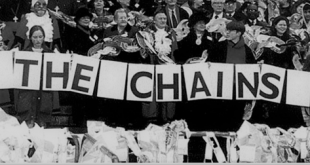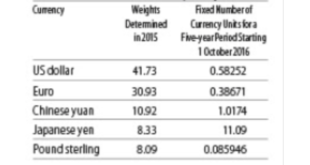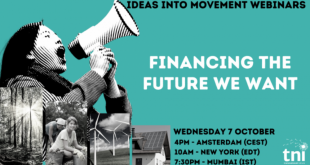As part of this series celebrating PRIME’s tenth anniversary, we are looking forward to the next ten years. This contribution by Laurie Macfarlane looks at the future role of the state. ——- John Maynard Keynes famously wrote: “Practical men, who believe themselves to be quite exempt from any intellectual influence, are usually the slaves of some defunct economist.” For the past 40 years, society has been the slave of a not-yet-defunct set of economic ideas. These ideas have shaped the way...
Read More »Austerity: a symptom of globalised rentier capitalism’s failure
Even while the economy is recast for today’s pandemic on the back of the dismal failures of the past decade, austerity is already rearing its ugly head. At one level there must be politics here. The public must not be allowed to think that socialising the economy to meet a pandemic means the economy might be socialised when the pandemic is over. Likewise, obsessing about excessive debt means the greatly more pressing and more dangerous reality of deficient expenditure is side-lined. But it’s...
Read More »Celebrating 10 years of PRIME and facing the 2020s..
As loyal readers know, we are a network of macro- and political economists and environmentalists influenced by Keynes or concerned to restore his thinking. In our mission statement, drafted back in 2010, we considered “that conventional or ‘mainstream’ economic theory has proved of almost no relevance to the ongoing and chronic failure of the global economy and to the gravest threat facing us all: climate change.” We stand by that statement. As the globalised and financialised economy...
Read More »COVID 19-related debt relief: a consortium proposal to the SDR basket countries
By T. Sabri Öncü & Ahmet ÖncüIn Memory of David Graeber (1961–2020)This article first appeared in the Indian journal, Economic and Political Weekly, on 21 November, 2020On 30 March 2020, the United Nations Conference on Trade and Development (UNCTAD) called for a $2.5 trillion COVID-19 crisis package for developing countries.[1] The UNCTAD...
Read More »In Memory of David Graeber – COVID 19-related debt relief
By T. Sabri Öncü & Ahmet Öncü In Memory of David Graeber (1961–2020) This article first appeared in the Indian journal, Economic and Political Weekly, on 21 November, 2020 under the title “A Consortium Proposal to the SDR Basket Countries” On 30 March 2020, the United Nations Conference on Trade and Development (UNCTAD) called for a $2.5 trillion COVID-19 crisis package for developing countries.[1] The UNCTAD proposals were: (i) $1 trillion to be made available through the expanded use...
Read More »Why we’re backing Universal Basic Services (UBS)
Photo from Paris demo October 2017 (by Jeanne Menjoulet , via https://commons.wikimedia.org/wiki/File:Make_our_public_services_great_again_(23768004778).jpg PRIME is supporting a new programme to develop and communicate universal basic services (UBS) as a route to wellbeing for all, greater equality, full and decently-paid employment,...
Read More »Why we’re backing Universal Basic Services (UBS)
PRIME is supporting a new programme to develop and communicate universal basic services (UBS) as a route to wellbeing for all, greater equality, full and decently-paid employment, and ecologically sustainable economic activity. UBS is a framework for policy and practice that fosters collective responsibility, exercised through public institutions, to meet needs we all share. It recognises that income has two dimensions: one is money and the other is ‘social income’, derived from in-kind...
Read More »Universal Basic Services – we’re looking to engage a part-time Project Officer
PRIME is pleased to be working with colleagues on a new project to promote the concept of and need for Universal Basic Services. We are now seeking to engage a part-time Project Officer to help the Task Force launch the project. Details of the project and role below, and also set out in this pdf.PROJECT OFFICER: UNIVERSAL BASIC SERVICES (UBS) Summary We are seeking to engage the services of an energetic and creative person to help build support for Universal Basic...
Read More »Financing the Future We Want with the TNI
This is a You Tube recording of a discussion organised by the Trans National Institute (TNI) on Wednesday, 7th October, 2020. Jayati Ghosh, Ann Pettifor, Alvin Mosioma and Oscar Reyes hold a stimulating conversation on how to finance a recovery from COVID-19 and invest in a just climate transition. They address key questions such as what options and mechanisms do we have in the current circumstances to avoid austerity and invest in a just transition? How can we ensure that the Global South...
Read More » Prime, Policy Research in Macroeconomics
Prime, Policy Research in Macroeconomics




